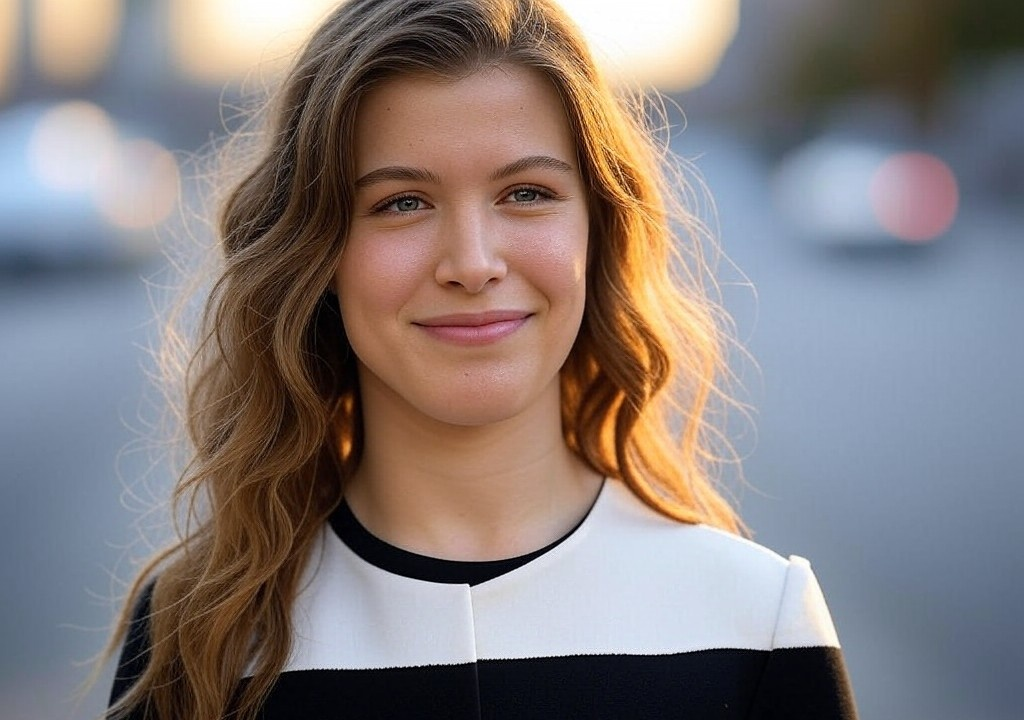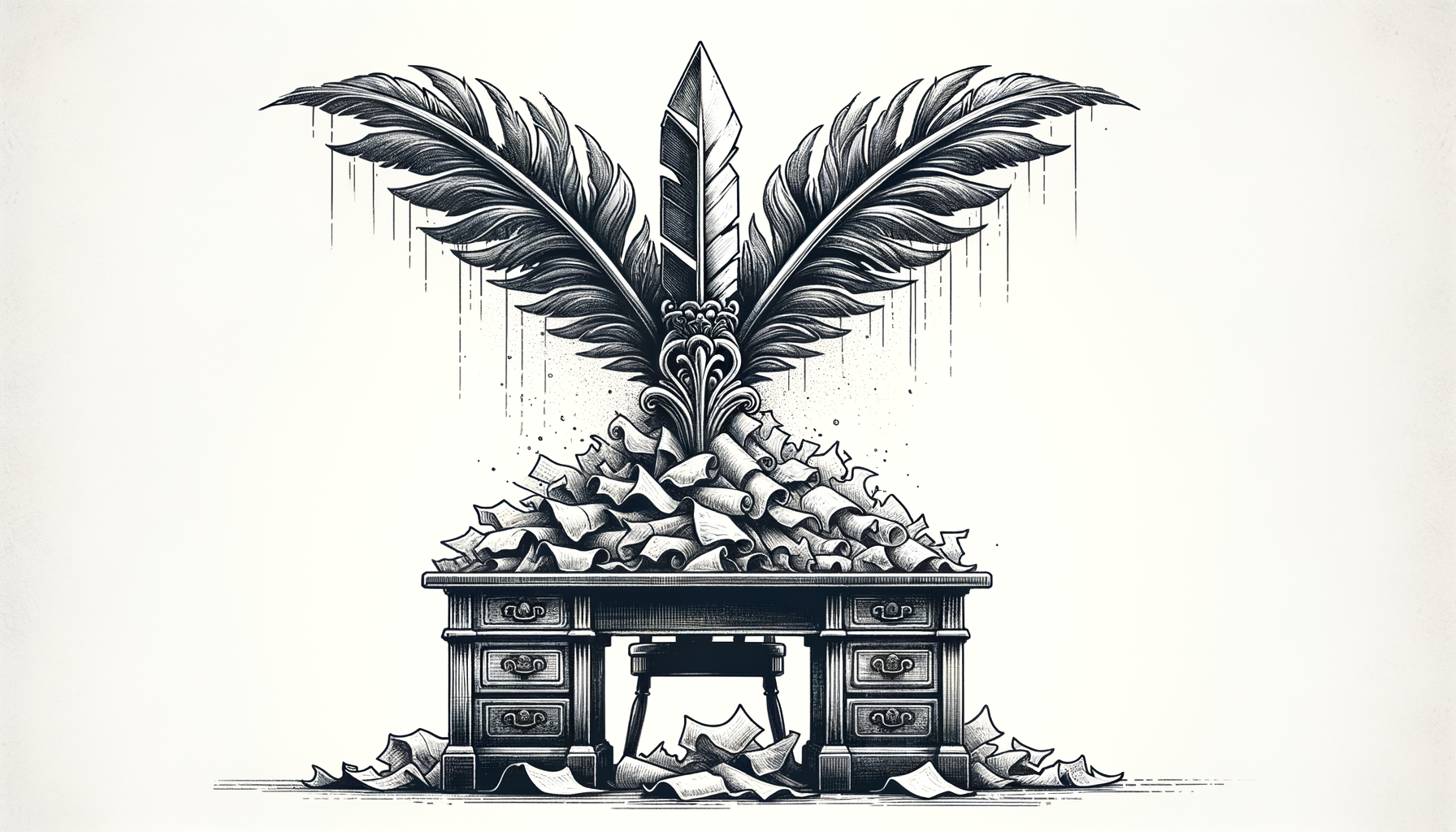“So, you just sit around making up stories all day, right?” This is the quip I hear most often when I tell people I’m an author. (A close second: “Oh, you’re going to put me in your next book, aren’t you?” Great idea, Chad. I’ll make you the tree in the background of Chapter Five.)
Don’t get me wrong, being a writer has its share of charm—it’s a career steeped in coffee-fueled afternoons and the kind of daydreaming teachers used to punish me for. But the romanticized version people imagine? Spoiler alert: It’s about as realistic as a Hallmark movie plot. Here’s the real story about what it means to be a writer—and why it’s not all leisurely mornings in flannel pajamas.
Myth #1: Writers Work “Whenever They Want”
Let’s start with this common misconception: “Ah, you’re a writer! So you can work anytime, anywhere!” To this, I say: Sure, if you count endlessly revising the same sentence at 3 a.m. because your brain refuses to shut off.
Being a writer often means sticking to a schedule that’s less about “endless freedom” and more like a collage of tightly managed chaos. A looming deadline doesn’t care if I’m “feeling inspired.” And no, I don’t pack up my laptop to write poetry under a tree at Parc La Fontaine. Most of my work happens at my kitchen table with a rapidly cooling cup of coffee, my cat pawing at my notebooks like he’s auditioning for the role of Editor-in-Chief.
Also, writing is work even when we’re not “typing.” Reading novels, scouring strange corners of the internet for research, and replaying dialogue in our heads? That’s all part of the job. Sometimes “the office” is just me in my socks pacing the hallway because I’ve realized my protagonist doesn’t know what she wants in life—just like me when I’m stressed and standing in front of my fridge.
Myth #2: Stories Magically “Come to You”
People often assume writers are constantly struck by bolts of creative lightning. You know, the kind where you suddenly visualize an entire scene or hear dialogue in perfect, Oscar-worthy sentences. If only.
The truth is, ideas don’t show up like a knockout first date riding a Vespa in the rain. Most of the time, they stumble in late, awkward, and sweaty, and I have to coax them into existence by writing, rewriting, and then trashing whole paragraphs until something resembles coherence. Creativity? It’s more like a messy relationship than a Hollywood meet-cute—it demands attention, patience, and the occasional scream-into-a-pillow kind of frustration.
Sure, traveling to Paris as a student once fueled my fascination with rich, layered characters, but let’s be honest: those moments of clarity are rare. Most of my “brilliant ideas” emerge after watching TikTok analysis videos at midnight while eating a questionable amount of Nutella.
Myth #3: Writers Only Write
Here’s the kicker: the actual writing part? That’s maybe 20% of the job. The rest of the time, I’m donning half a dozen other hats. There’s research (how many times can one Google “how long does it take for bruises to fade” before landing on a watchlist?), endless rounds of editing, marketing, pitching to publishers, and—for the joyfully introverted among us—networking.
Take marketing, for example. Once you’ve spent months bringing characters to life, it turns out you also have to coax real people to care about them. Cue the existential dread-inducing process of promoting your work on social media, complete with captions that walk the line between “relatable fun” and “please buy my book so I can keep doing this job forever.” It’s less about the craft and, some days, more about algorithms, engagement rates, and learning not to cry when someone comments: “This book isn’t really for me, but I’m sure someone will like it.” Ouch.
Myth #4: The Job Is Lonely
Yes, being a writer involves hours spent alone. But lonely? Not really. I mean, my characters are always around (does that make me sound… okay?).
In a sense, being alone with your thoughts is part of the magic. It’s where you get to build entire worlds from scratch—something I likely overlearned growing up in Montreal, a city bursting with stories in every cobblestone alley and corner bistro. But even the most solitary writer doesn’t do it all alone. I lean on beta readers, editors, my fellow writers, and that one friend whose life updates sneak their way into dialogue (you didn’t hear that from me).
The flip side? Writers also get a backstage pass to understanding people. When you spend hours dissecting human emotions for your stories, you notice how someone’s tone shifts when they talk about a heartbreak or how laughter can take on a hundred different shades depending on its context. If you catch me people-watching at a café, don’t worry—I’m not “plotting your demise.” I’m studying the way your hands curl when you tell a joke. It’s research. Sort of.
Myth #5: Writing Is "All Fun, All the Time"
As much as I’d love to assure you that writing is never stressful, that would be like saying long-distance relationships are inevitable bliss: possible, but… not exactly common.
Writing is gratifying, yes. But it’s also nerve-wracking, especially when your work—literal pieces of your soul—are released into the universe to (hopefully) survive the critical eye of readers. Add to that the financial rollercoaster inherent to creative careers, with feast-or-famine paychecks that make it feel like I’m juggling flaming torches while trying to save up for groceries.
And yet, isn’t this the human condition? To throw yourself into something vulnerable, knowing full well it might not work out? Honestly, it’s not so different from dating. Loving what you do, like loving anyone, requires some risk—and trust me, it can be just as gut-wrenching.
Why I Love It Anyway
Here’s the odd part about being a writer: even with all the doubt, late nights, and scrambling for just the right phrase, I wouldn’t trade it for anything. Writing lets me time-travel into 19th-century Quebec, explore the complexities of language and identity, and, most importantly, connect. For every “not for me” review, there’s someone sending a message that says, “I saw myself in your words.” That makes all the realities of the job worthwhile.
So, what is being a writer really like? It’s tough to sum up—a mix of heartbreak, joy, and the occasional “Did I spell that correctly?” spiral. It’s messy. It’s rewarding. And it’s a little like dating in Montreal: full of captivating highs and humbling moments of clarity.
At the end of the day, I might not have it all figured out—but I’m glad I took the risk to let these stories make their way into the world. And Chad? You’re officially a tree now. Thanks for the idea.




















